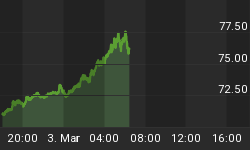Signed contracts on sales of exiting homes increased 3.6% in June after an upwardly-revised 0.8% increase in May. The June data marks the fifth consecutive monthly increase in pending home sales. The pending-home-sales index is now at a two-year high. Of course, one of the reasons the sales are pending is that the buyers have to qualify for mortgages, a more difficult endeavor today than was the case a few years ago when the only requirement was a pulse - and that was more of a guideline than an absolute rule. I remain skeptical that the lows in house prices have been put in. But as for sales, I do believe we have seen the lows for this housing depression. There is a lag between when sales and starts pick up and when the GDP component "residential investment expenditures" respond. But if we can believe Monday's June nominal construction expenditures data, which showed an increase in residential construction expenditures, we are at or near a low for this GDP component.
Real Consumption Expenditures in Reverse in June
Real personal consumption expenditures (PCE) contracted by 0.1% in June after being unchanged in May. But real PCE is set to rev into forward gear in July due, in part, to the Car Allowance Rebate System (CARS), aka, "cash for clunkers." This program was operative for only the last week of July, but it helped light motor vehicle sales accelerate 15.8% in July to an annualized pace of 11.2 million units. With clunkers lined up outside new car dealers' lots waiting for their turn to be crushed, the Senate is likely to go along with the House and authorize an extra $2 billion to the program. This should help boost or maintain car and truck sales in August. Thus, it is likely that real PCE will see some growth in the third quarter. In turn, it is highly likely that real GDP as a whole will see some growth in the third quarter. But some of the expected third-quarter PCE and real GDP growth will have been "borrowed" from the fourth quarter.
Nominal personal income, which grew 1.3% in May, contracted by 1.3% in June. A lot of seniors got a one-time $250 gift from Uncle Sam in May, which helped boost May's personal income. June personal income was held back not only because seniors did not get another special gift but also because nominal wage & salary income dipped by 0.4%. With the 0.5% increase in nominal PCE and the 1.3% decline in nominal personal income, the saving rate slipped back to 4.6% in June vs. its 6.2% level in May. In fits and starts, the personal saving rate is headed back up toward its more normal level of 8%. As households venture out along the investment risk curve with their past savings and future saving, away from government-guaranteed deposits, personal saving will translate into increased corporate spending.
















